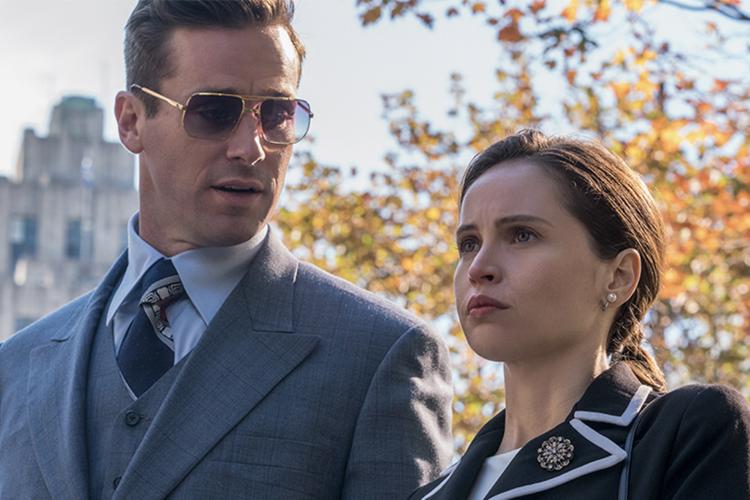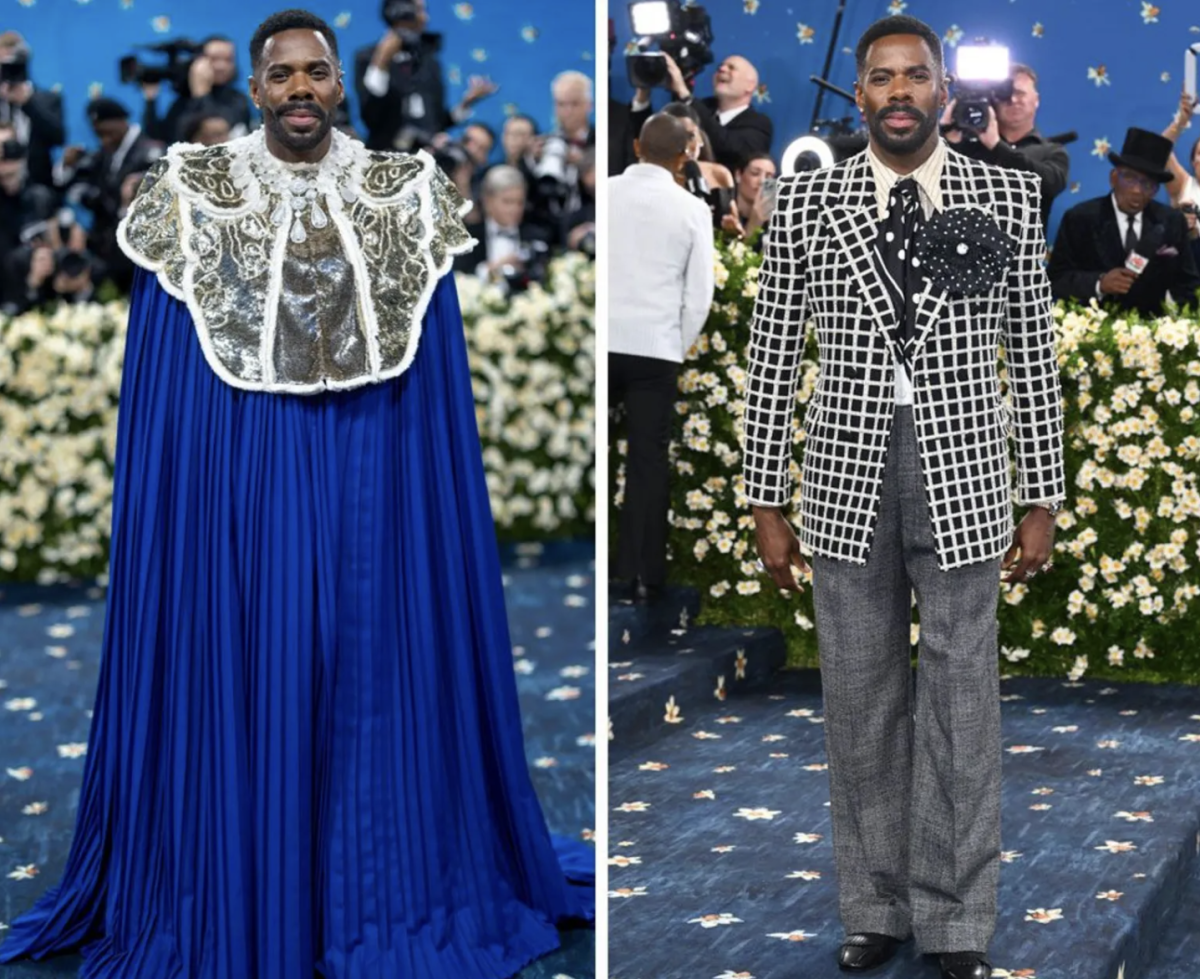//PICTURED ABOVE: In the movie, Marty Ginsburg (Armie Hammer) and Ruth Ginsburg (Felicity Jones) converse before entering the Supreme Court. Photo courtesy of USA Today.
“Welcome to Harvard Law School ladies. Let’s go around the table and report who you are and why you are occupying a place that could have gone to a man.”
Such are the words spoken by Erwin Griswold (Sam Waterston), Dean of the Harvard Law School, to the few female students that make up the incoming Harvard Law Class. I believe that these words truly set the tone for the rest of “On the Basis of Sex,” a film that details the life of Ruth Bader Ginsburg (Felicity Jones). As evident from Griswold’s words, the movie tackles issues of sexism that much too frequently circulated throughout society in the 20th century. Because, according to Griswold—and many other men for that matter—a place like Harvard was no place for a woman.
Going into the movie, I had my initial fears. RBG is such a well-known figure in today’s society, as she is currently one of three female justices confirmed to the Supreme Court. Would “On the Basis of Sex” simply spurt out facts and statistics that I already knew?
Immediately after the movie commenced, however, my fears were alleviated. Upon entering the theater, I found myself eagerly watching the plot unfold in front of me for the next two hours, never once losing focus. Contrary to what I believed it to be, the movie focused on a different and perhaps less-publicized aspect of Ginsburg’s life: her young adult years in which she wore the many different hats of wife, mother, law student, law professor and eventually co-litigator with her husband, Marty (Armie Hammer).
So while the movie does deal a lot with the law and various court cases, the journey that the audience follows Jones on provides for a captivating plot that does not disappoint.
In addition to having an entertaining storyline, the cast was made up of some well-known names. Waterston, Jones and Hammer are all respected in the film industry, and actors and actresses like Justin Theroux and Kathy Bates had roles as well.
I found myself appreciative of the fact that the movie didn’t focus on the steps that Ginsburg took to get confirmed into the Supreme Court, but rather, the steps she took to ensure that she would even become a lawyer one day. I believe that I and my fellow audience members gained a sense of respect for her after learning of the obstacles that she had to scale merely just to graduate Law School. Had the film focused on her accomplishments later in life, many would never have known the struggles that she endured before becoming successful.
This brings me to my next point: while they did depict her achievements, the filmmakers were not afraid to show her failures as well. This message was a refreshing one, as I feel that it is important for people to know that the road to success is paved with failures.
Overall, I thought the message of “On the Basis of Sex” was very empowering. Watching the film, I found myself shocked at the ways in which sexism dominated society only half a century ago. If anything, it made me more appreciative of the rights that I as a female have today. I believe that it is important for the film industry—and all industries—to continue portraying strong female leads who are willing to fight for what they believe in. It is essential that the youth of today have powerful female role models like Ginsburg to look up to.
At the beginning of the film, Griswold poses the question “What does it mean to be a Harvard man?” Through her stellar performance and portrayal of Ginsburg, Jones shows us that, if anything, it means that he doesn’t have to be a man.
Story by Charlotte Dross, Editor-in-Chief.














